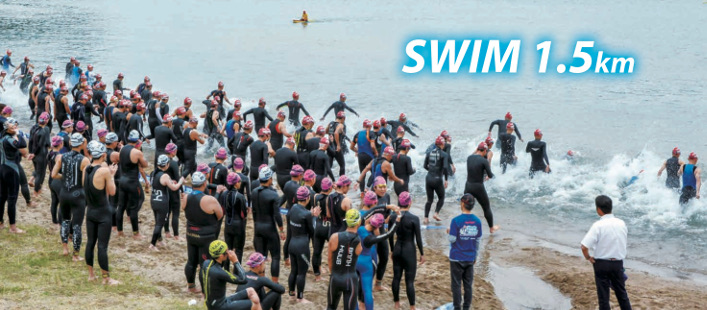People may https://restaurant-e-guide.com/running-the-gauntlet/ have a headache, nausea, fatigue, and other unpleasant symptoms during a hangover. These side effects can change based on the amount of alcohol a person consumes. Drinking a lot, especially over a short period, increases the risk of unwanted side effects or dangerous complications.
Integrating mindfulness into daily routines can significantly help manage cravings. Practices such as guided meditations, mindfulness-based stress reduction (MBSR), and breathing exercises help focus the mind and alleviate stress. We do not receive any commission or fee that is dependent upon which treatment provider a caller chooses. Another immediate need you should fulfill following a relapse is a safe living environment. If your living arrangements are neither safe nor conducive to recovery, please consider alternative arrangements.
This program is designed to address co-occurring disorders, such as anxiety, depression, or PTSD, alongside addiction. By treating both conditions simultaneously, Harmony Ridge Recovery ensures that patients have the tools they need to manage their mental health and maintain sobriety. Organizations like Alcoholics Anonymous (AA) strongly advocate for a zero-tolerance approach. Their 12-step program emphasizes the importance of maintaining complete abstinence and fostering connections with others who understand the challenges of addiction. Similarly, SMART https://skyhopper.biz/category/women%20health/ Recovery offers science-based tools that help individuals focus on managing thoughts, emotions, and behaviors to maintain sobriety.
How can I navigate social situations without alcohol?
This process may cause intense withdrawal effects initially, which usually lessen over time. However, significant alcohol cravings may last much longer and often contribute to relapse. People will often go through treatment and have a period of sobriety. But what happens if, after being sober, someone starts drinking again?
The Life-Saving Power of Staying Connected: Why Alumni Programs Prevent Returning to Use
A critical step in overcoming this stage of relapse is to practice self-care in its physical, psychological, and emotional aspects. This means making time for eating, sleeping, and having fun, as well as behaving kind enough toward yourself that you permit yourself these necessities. Often, the initial image of relapse you may imagine is when a person either in short– or long-term recovery starts drinking again. While this is true, much more goes into a relapse than just drinking or using substances again. A single drink can trigger the same patterns that led to addiction in the first place, making moderation an unrealistic goal for most.
Finding the Right Support to Achieve Your Alcohol Recovery Goals
Drinking after achieving sobriety can have some serious consequences, and it’s essential to be aware of them. First of all, it can lead to a relapse, where you find yourself trapped in the same cycle of addiction you worked so hard to break. As you likely know, alcohol can do a number on your brain, your liver, and your judgment. Here’s a quick overview of what happens when you stop drinking. You’ll meet millions of fellow Reframers in our 24/7 Forum chat and daily Zoom check-in meetings. Receive encouragement from people worldwide who know exactly what you’re going through!
Emotional Triggers
After weeks or months of sobriety, it may seem possible to return to social drinking. Having a beer or two with some friends may not seem like a problem, but in the case of alcoholism, it is. Even one drink can mean losing years of progress on maintaining a sober lifestyle. Drinking after sobriety is a thought in the back of many recovering alcoholics’ minds.
four times more likely to become an alcoholic
- Practices such as guided meditations, mindfulness-based stress reduction (MBSR), and breathing exercises help focus the mind and alleviate stress.
- Therapists use methods like cognitive-behavioral therapy (CBT) to change negative thought patterns that lead to drinking.
- These treatments work best alongside counseling and behavioral therapy.
- Anger, frustration at the situation, helplessness, and fear are normal feelings for a partner.
- That means even though your partner is working diligently, they can still relapse.
We’ve all been there – head pounding, mouth dry as sandpaper, stomach churning with regret. The dreaded hangover after a night of excessive drinking brings not just physical discomfort but also a series of creative self-deceptions we craft to make sense of our choices. These mental justifications range from amusing to concerning, revealing much about our relationship with alcohol and our coping mechanisms. It is essential to seek treatment as soon as you recognize the signs of addiction in yourself or a loved one. Going on a bender doesn’t necessarily mean someone is struggling with alcohol use or alcoholism. However, frequent binges or struggling to control your drinking may mean you need to evaluate your relationship with alcohol.
After this, he decided to challenge himself to two months being alcohol-free. “If I can do two months off, then I can prove to myself that I don’t have a problem,” he recalled. However, Tom admitted that after two months, he was still “really struggling” and that it was a challenge for him to attend work and social events and not have a drink. So, he decided to try and stay sober until his birthday, June 6. When the date came up, Tom revealed that it was the “happiest he’d ever been” in his life and that he’s decided to keep his alcohol-free outlook up. During treatment, people will work with social workers and other treatment staff to develop a solid aftercare plan.
Choosing non-alcoholic alternatives can help individuals in recovery avoid the temptation of alcohol while still enjoying social occasions. Cocktails and non-alcoholic spirits are delicious and refreshing options, allowing individuals to participate in social events without compromising their sobriety. You may be hesitant to propose this topic to your therapist, your sponsor, or your friends https://www.xameliax.com/successful-pregnancy-after-miscarriage-stories/ in recovery for fear of judgment or even ridicule; however, there are no stupid questions when it comes to recovery. The more information you have, the easier it will be to find a path to sobriety.
The Nature of Alcohol Addiction
Even a small amount of it can cause damage to the liver and cardiovascular system. Most importantly, reintroducing alcohol into your life should not be taken lightly. If you find yourself craving alcohol, never allow yourself to decide in the moment. People who drink heavily or who drink alone may choose to stop drinking for several months, a year, or longer, depending on their needs. You don’t have wine on the kitchen counter or vodka in your freezer.































